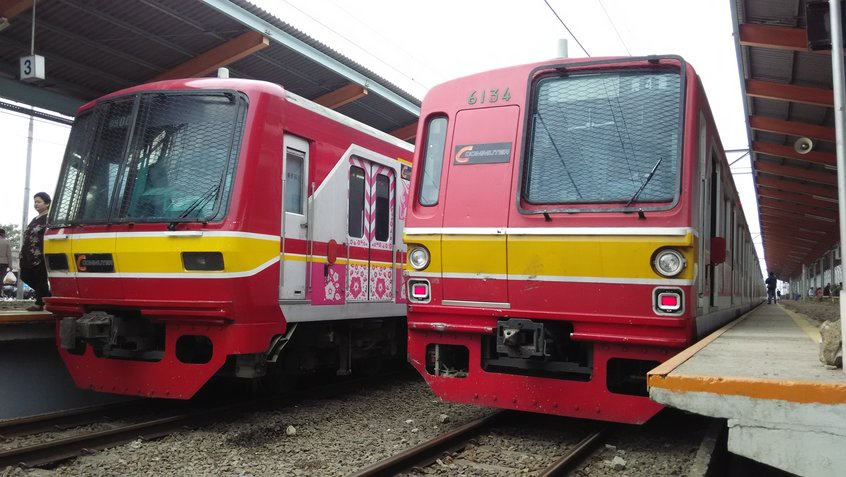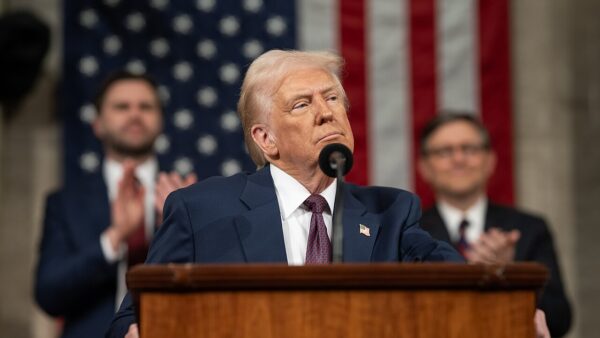After scrapping plans for a $5bn high-speed rail line, Indonesia has invited bids for a cheaper, slower system.
The high-speed project, a 150km line from Jakarta to Bandung on Indonesia’s main island of Java, had been the subject of a fierce bidding war between China and Japan.
Indonesia is just the first battlefield between China and Japan. There are other countries that would be interested in similar projects so the stakes are high– Rizal Ramli, Chairman of Indonesian Bureau of Logistics
But rather than declaring a winner at the end of last week, as expected, President Joko Widodo (pictured) cancelled the scheme.
Sofyan Djalil, the national planning minister, said the government decided suddenly against a high-speed link because the route was too short for a high-speed train.
Another reason was that, despite competitive loans offered by China and Japan, it still required state financing, and the government wants to save its own cash for infrastructure elsewhere than on the most populous and economically advantaged main island, Djalil said, according to the Jakarta Post.
The plan now is to attract bidders for the line between the capital and Bandung, the country’s third largest city, that will be slower but 40% cheaper.
China v Japan
Ambassadors from China and Japan were visibly upset by the news, reported the Post.
The Bandung line had been the subject of fierce struggle between Chinese and Japanese companies – and their governments.
The rivalry was sharpened by the fact that it was the first high-speed line in the country, meaning whatever side won would have been able to export its technology safe in the knowledge that further sections would use the same signalling, power and rolling stock.

Indonesia’s rail network has stagnated in recent years. These trains in Depok, south of Jakarta, used to run on the Tokyo metro (Muhammad Pascal Fajrin/Wikimedia Commons)
The line was therefore a chance to begin a complete high-speed network in Indonesia, which has a population of 250 million and a rail system that has suffered from decades of underinvestment – the present service between Jakarta and Bandung travels at about 50km/h – and in recent years has lost passengers to budget airlines.
If Japan wants to stay in the process they must get rid of the requirement for government guarantees and government loans– Rini Soemarno, Indonesian Minister of Industry and Trade
Both countries sent special envoys to the Indonesian government to sweeten the terms of the deal as the moment of decision approached.
The Japanese offered a relaxation of credit terms and more extensive technology transfers; China protested at the move, but also made revisions to its bid.
China’s proposal, which had been widely reported as the likely winner, was costed at $5bn, which was more expensive that Japan’s, but China was offering to finance a higher proportion of it. It was also offering to build the link in three years, half the time required by Japan, and to use more Indonesian technology and labour.
Still interested
China and Japan are still interested in the medium-speed train, Rizal Ramli, the coordinating minister for maritime affairs, told Reuters this week.
“Indonesia is just the first battlefield between China and Japan,” he said. “There are other countries that would be interested in similar projects so the stakes are high.”
A Japanese embassy official in Jakarta told reporters the Japanese government itself would not be bidding for the new project, but that Indonesia had invited private Japanese companies to participate.
Rini Soemarno, the state enterprises minister who was to have picked the winning bid, said on Friday that Japanese requests for government guarantees and government loans to build the line were too burdensome for Indonesia, and had not been sought by China.
He said: “If Japan wants to stay in the process they must get rid of the requirement for government guarantees and government loans.”
He added that Indonesia hoped to start construction on the slower Bandung line by the end of the year.
Top image: Indonesian president Joko Widodo (Source: Pemerintah Provins/Provincial Government of Jakarta)
Comments
Comments are closed.











If we were to consider basic needs in any country, shelling out a cool 5 billion in any currency seems precious close to shortsightedness. The economy of Indonesia is not exactly buoyant and certainly spending monies that the country doesn’t really have on a high speed rail line is pure folly.
While it is impossible to make comparisons between income levels in a developed Western country and Indonesia, the locals must be thinking that someone, somewhere has got their priorities wrong. Partly out of prestige rather than real need come such schemes thick and fast. The alternative budgeting now appears to produce or calculate the building of a line 40% cheaper. Amazing!
The actual concept of any high speed line anywhere in the world is flawed. Why?
Purely because the idea has to be planted like a seed, hoping it will grow and produce offspring elsewhere. Can Indonesia manage without high speed railway libes? If there was going to be an enormous contrast between what the the current GDP of Indonesia is and what the population can actually gain from accepting the idea of building a high speed line then this is the conundrum. The only obvious benefits of planning any lines are the temporary employment prospects for countrymen and women: constructing the formation and track laying, not to mention the accompanying infrastructure. Once the line is complete, construction staff are normally laid off, as is the norm. Only a handful of personnel will be retained on care and maintenance.
Someone in Indonesia has got their head screwed on right! At last.